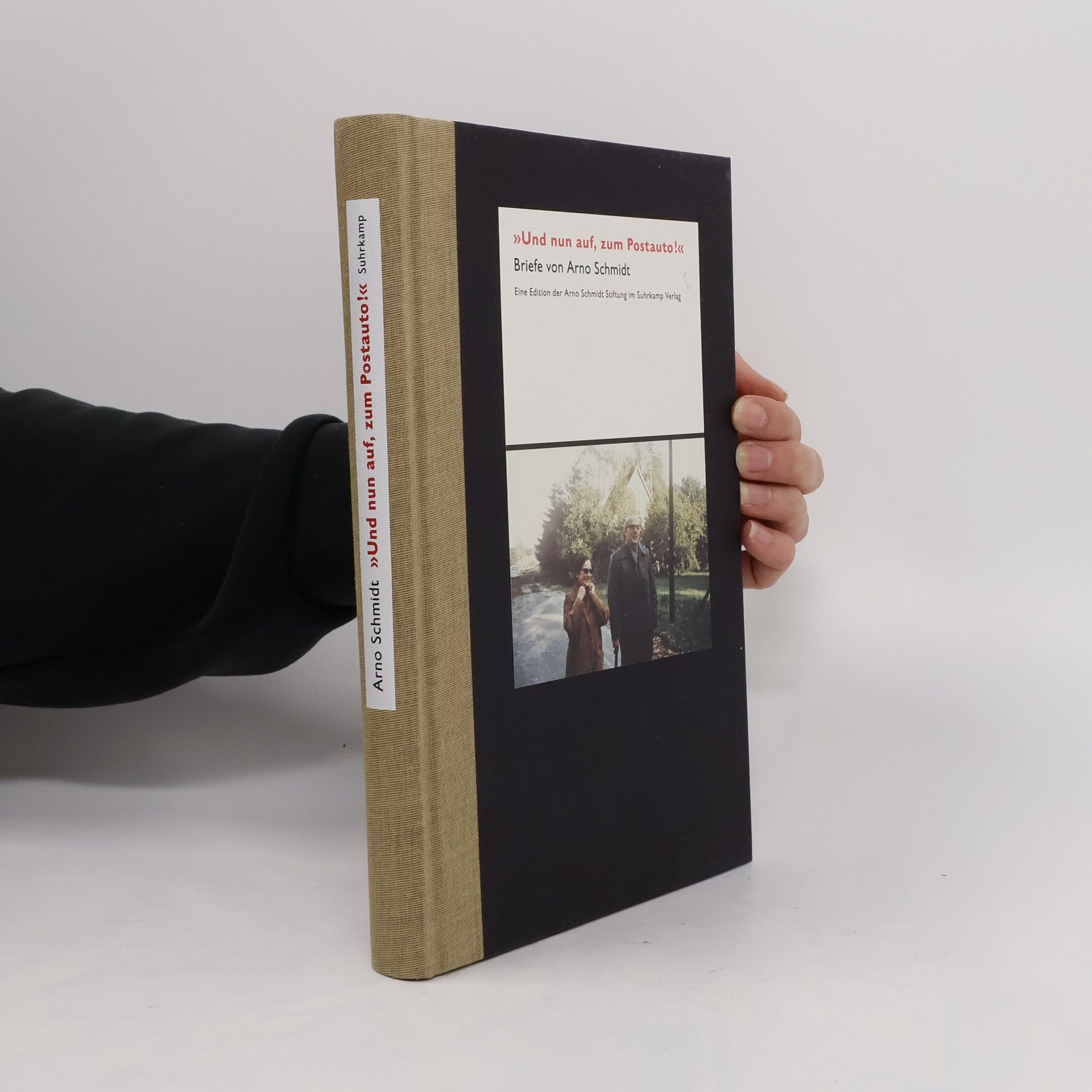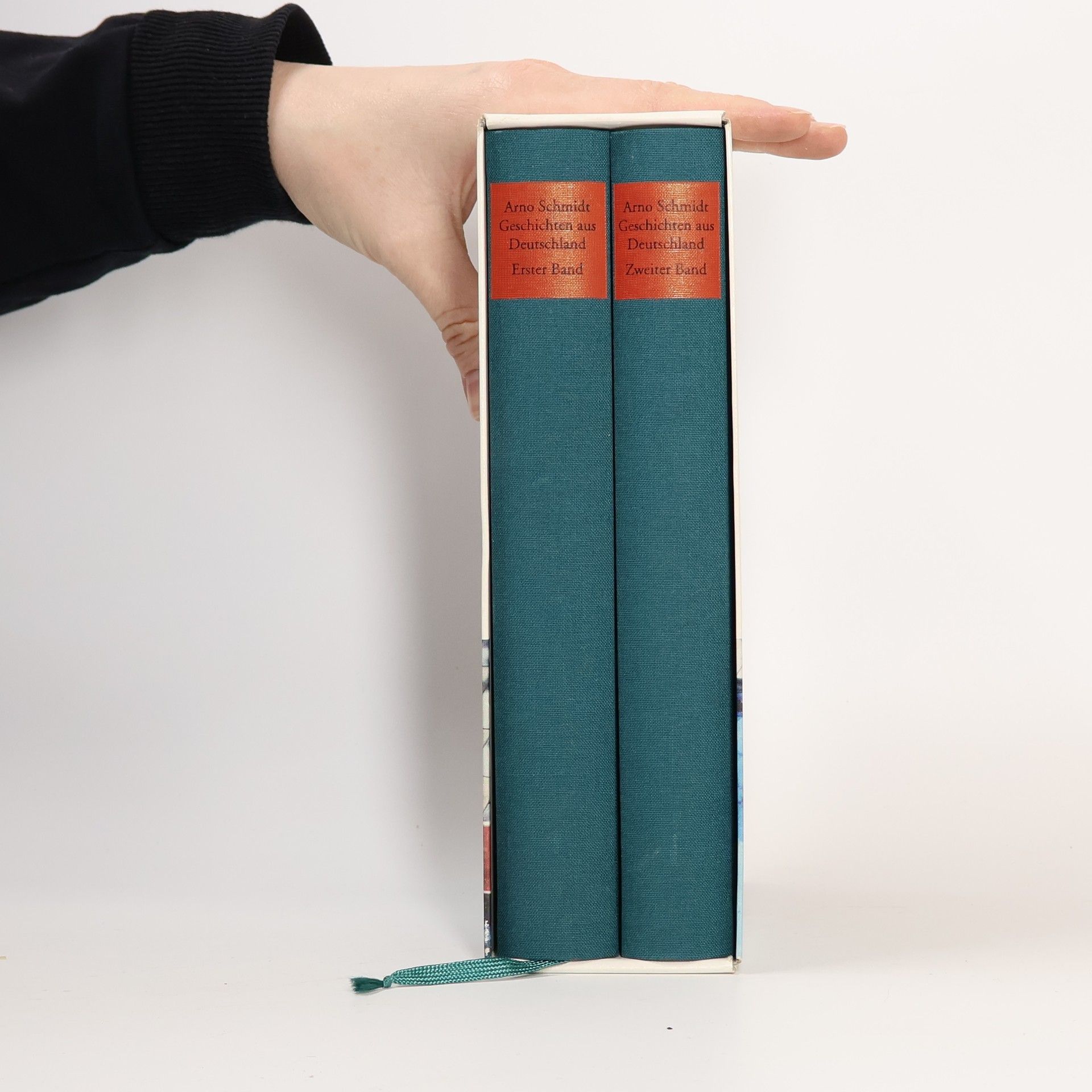V románě Kamenné srdce vystupuje „vzdělaný zaháleč“ Walter Eggers, kterému se sice líbí paní domácí s plně vyvinutým poprsím, takže s ní spí, ale jen proto, aby z ní vydobyl vzácné zděděné knihy. Vůči jiným lidem vystupuje čistě s myšlenkou na vlastní prospěch, citový vztah má pouze ke sto let starým knihám. Eggers je náruživý sběratel čísel, dat, faktů a dokumentů stejně jako Arno Schmidt. Kniha je osmým svazkem ve Schmidtově jedinečné řadě (Leviatan, Cesty do Weilaghiri, Ze života fauna, Brandovo blato, Jezerní krajina s Pocahontas, Větrné mlýny, Republika učenců).
Arno Schmidt-Trucksäss Knihy
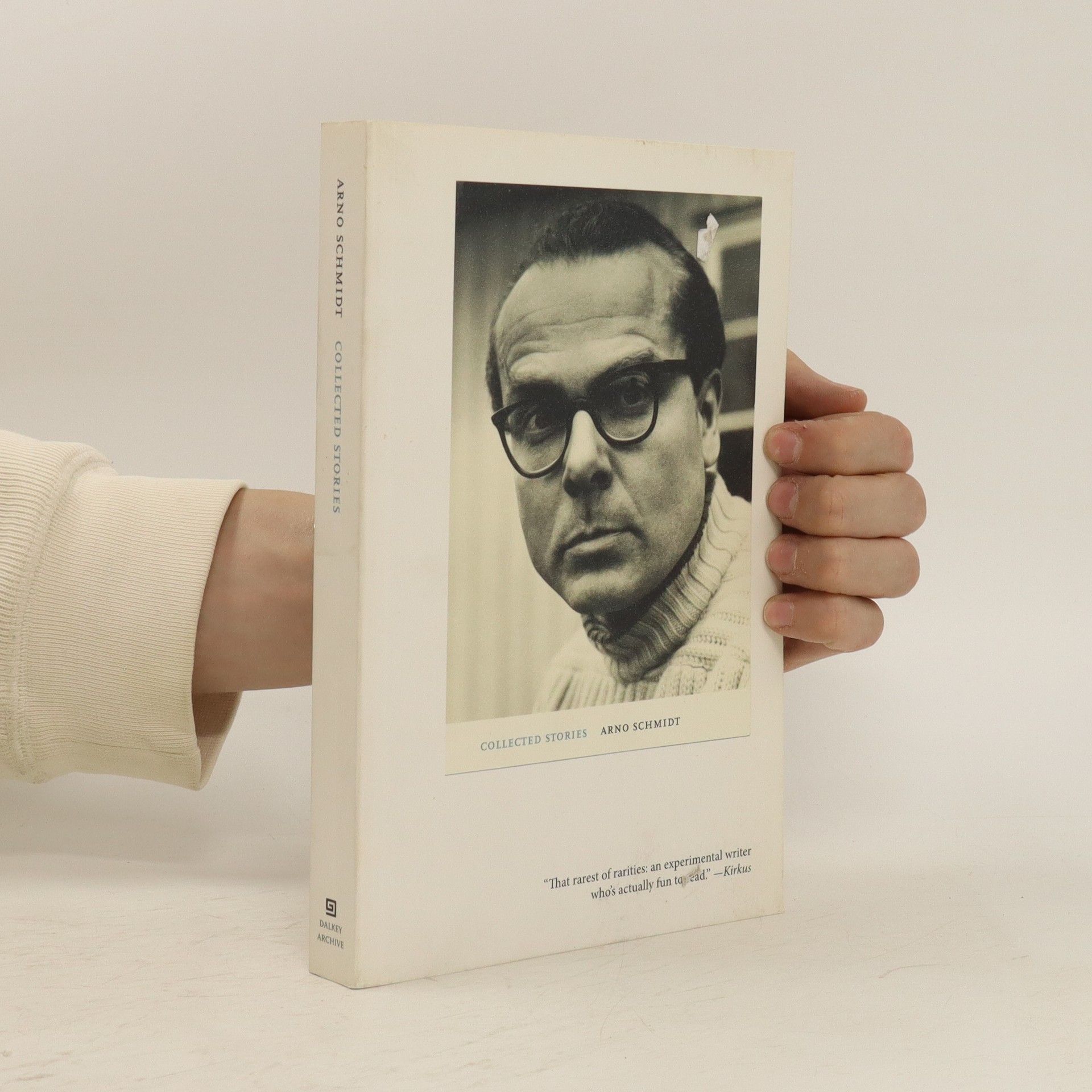


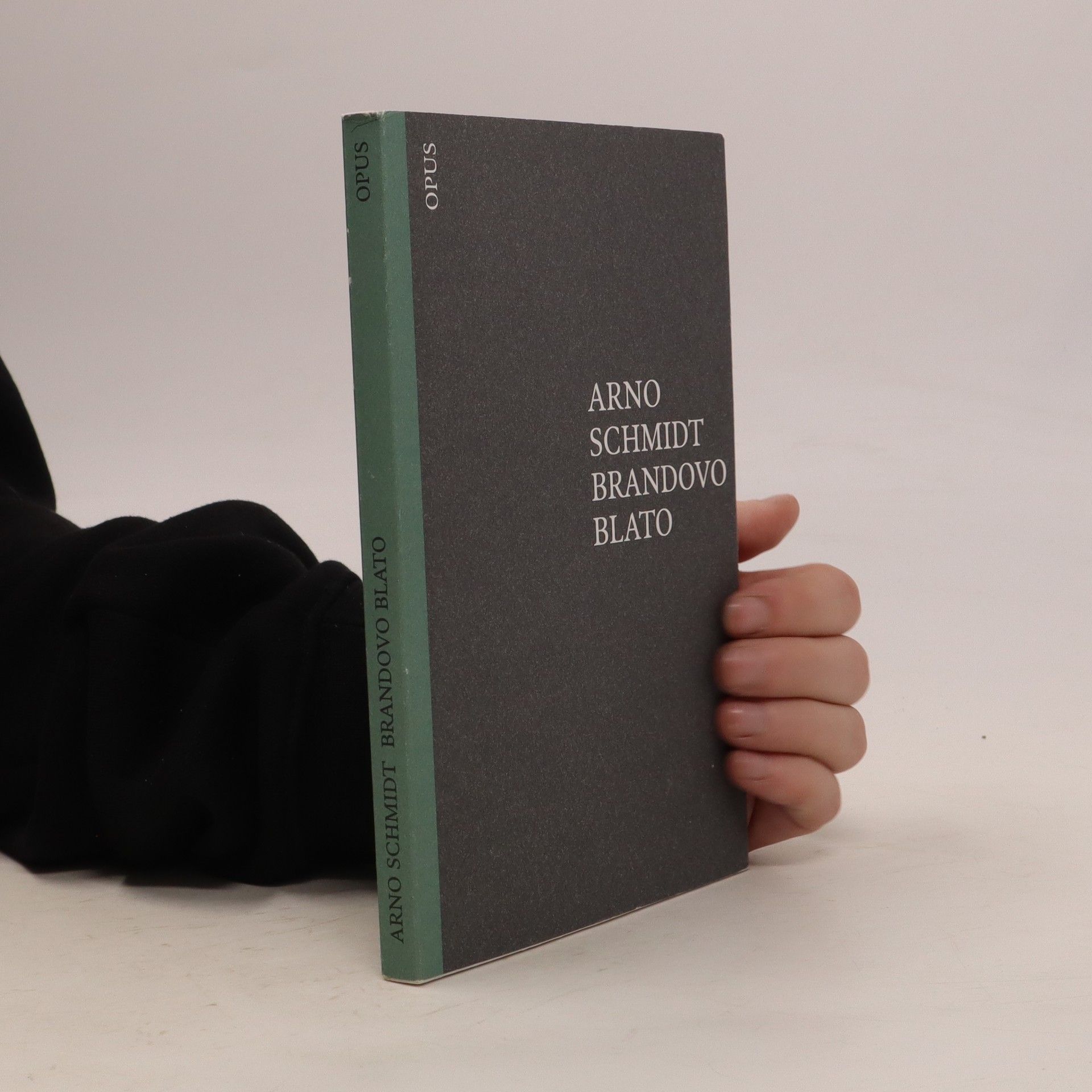

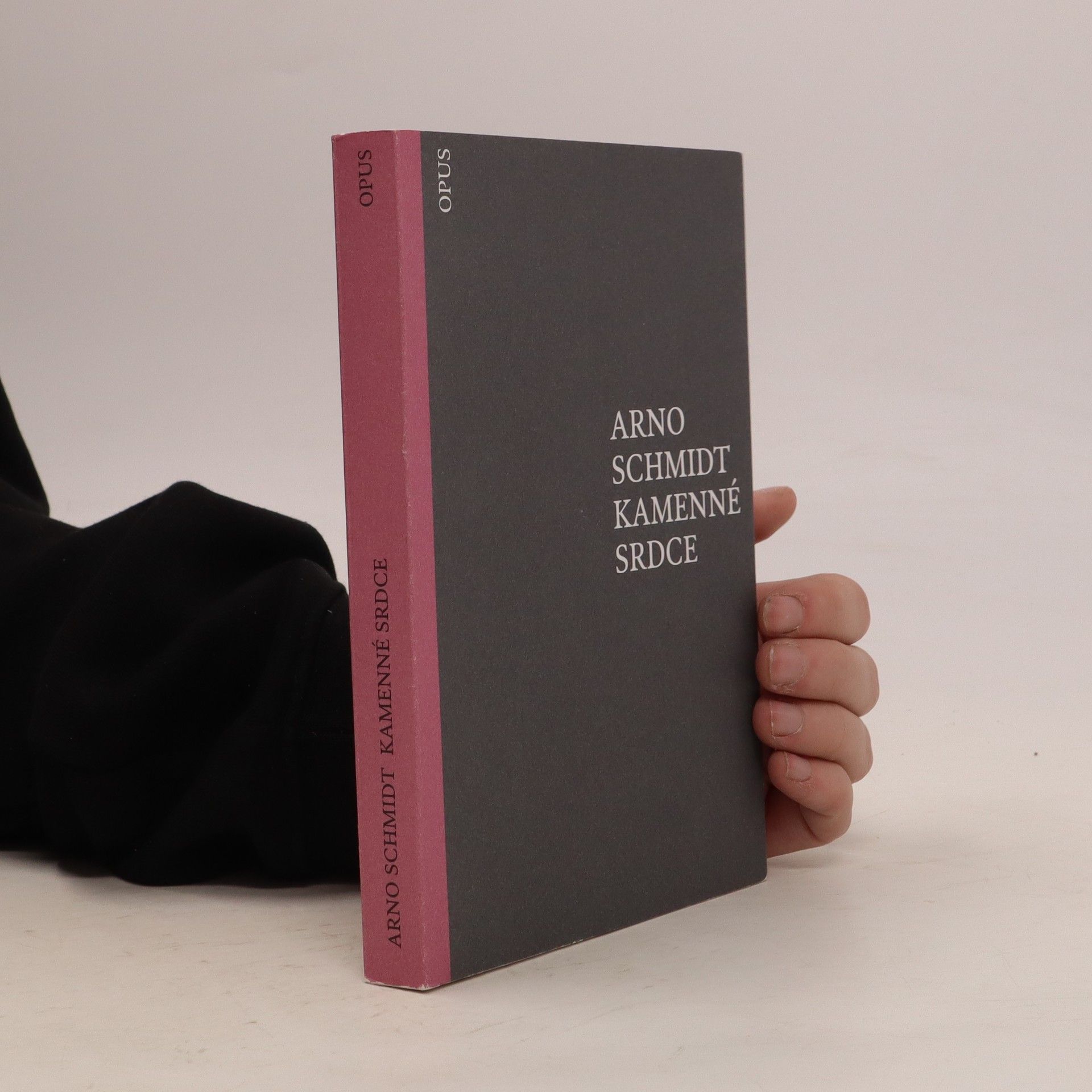
Kratší román německého spisovatele Arno Schmidta (1914–1979) líčí ve stylu „fotografického alba“ erotický prožitek ich-vypravěče během krátké dovolené u jezera Dümmer v Dolním Sasku. Próza Jezerní krajina s Pocahontas je doplněna třemi kratšími povídkami z let 1957–1959 Školní výlet, Bubeník u cara a Druhý měsíc a růžové oči, které jsou typickými ukázkami Schmidtovy nápaditosti a schopnosti jazykem plným nečekaných a poetických asociací přesně vypozorovat a popisovat realitu
Brandovo blato
- 118 stránek
- 5 hodin čtení
Krátký román Brandovo blato z roku 1951 úzce souvisí s dalším „krátkým“ románem Ze života fauna (1953), který v českém překladu vyšel minulý rok, a také s prózou Černá zrcadla (1951) obsaženou v českém souboru raných Schmidtových próz Leviatan (Opus 2011). Tyto tři uvedené texty zachycují jak válečná německá apokalypsa a její poválečné dozvuky nadobro poznamenaly život jedince i celé společnosti, a manifestují autorův pesimistický názor na vývoj lidského společenství. Text má deníkový charakter, kompozice je ovšem složitější: kříží se tu časové roviny a proplétají autobiografické prvky ze života de la Mote-Fouquého i Arno Schmidta.
Krátký román z roku 1953, který se zabývá německým měšťáctvem v době národního socialismu. Děj zabírá údobí válečných let 1939–1944 a je rozčleněn na tři části: únor 1939, květen/srpen 1939 a srpen/září 1944. „Faun“ je Schmidtovo mistrovské dílo, v němž plně rozehrává celý svůj autorský rejstřík: osobní naléhavost výpovědi, vyhraněný životní postoj, předurčený jednak osobními dispozicemi, jednak určujícími válečnými zážitky, dějinný pesimismus, kdy pro lidstvo, v jeho očích nenávratně směřující ke zkáze, vidí jedinou možnou záchranu díky umění a kultuře vzdělanosti. To vše je podáváno s jazykovou bravurou a novátorstvím, které nemá obdoby – přitom není samoúčelné. Román je zdařilé tvůrčí gesto, jímž Arno Schmidt skvělými jazykovými prostředky vytváří jedinečný portrét doby i jednotlivce. Přeložila Michaela Jacobsenová.
Osm knih svérázného německého prozaika Arno Schmidta vydaných v letech 2011–2018: Leviatan, Cesty do Weilaghiri, Ze života fauna, Brandovo blato, Jezerní krajina s Pocahontas, Větrné mlýny, Republika učenců, Kamenné srdce. Překlad Michaela Jacobsenová a Radovan Charvát.
The Collected Stories of Arno Schmidt
- 328 stránek
- 12 hodin čtení
They are grouped under three headings: the first two, Tales from Island Street and Sturenburg Stories, are a perfect spot to test Schmidtian waters, to hear the voice of a master storyteller. Twenty-five short tales written for a wide audience, they all share an eerie whimsy. It is as if Schmidt's beloved German Romantics were here with new stories for the modern reader.And then there is Country Matters, longer, more experimental stories written for the adventurous reader. Joyce and Freud are constant inspirations, but Schmidt's unique brand of intellectual ribaldry, shot through with the pain of our common humanity, enlivens all ten stories.Of the thirty-five stories in this volume, only two have previously appeared in English translation. Ranging from Schmidt at his most inviting and whimsical to Schmidt at his most cerebral and complex, the stories are a perfect introduction to his work.
Set against the backdrop of Germany's tumultuous history, this trilogy explores life from the Nazi era to a dystopian future. The first novel follows a government worker who finds solace in the stories of a Napoleonic deserter. The second portrays a writer navigating the chaos of postwar survival within a small community. The final installment features a solitary narrator grappling with existential dread in a nearly obliterated world, only to confront new fears upon discovering another survivor. Schmidt's writing is marked by keen observation and wit.
35 Jahre lang hat John E. Woods Arno Schmidt übersetzt, fast das gesamte literarische Werk des deutschen Schriftstellers übertrug der Amerikaner in seine Muttersprache. Die erste Schmidt-Lektüre war für ihn eine »Explosion« – mit Schmidts »Evening Edged in Gold« (»Abend mit Goldrand«) hat der preisgekrönte Übersetzer seine Karriere einst begonnen, dessen wichtigstes und umfangreichstes Werk hob sich Woods bis zum Schluss auf: Jetzt liegt der Überroman »Zettel’s Traum« endlich auf Englisch vor. Schmidts Sprachspiele, eine Herausforderung für jeden Übersetzer, hat Woods immer kreativ in die flexible englische Sprache übertragen, und manchmal ist seine Lösung witziger als das Original. John E. Woods über Bottom’s Dream: »›I have had a dream past the wit of man to say what dream it was,‹ says Bottom. ›I have had a dream, and I wrote a Big Book about it,‹ Arno Schmidt might have said. Schmidt’s rare vision is a journey into many literary worlds. First and foremost it is about Edgar Allan Poe, or perhaps it is language itself that plays that lead role; and it is certainly about sex in its many Freudian disguises, but about love as well, whether fragile and unfulfilled or crude and wedded.«
Dieser Band versammelt über 150 Briefe von Arno Schmidt, von denen die meisten bislang unpubliziert sind. Die Empfänger reichen von seiner Mutter und Schwester über Kriegs- und Schulkameraden bis hin zu Verlegern und anderen Autoren. Die Korrespondenz bietet prägnante Einblicke in seinen entbehrungsreichen und disziplinierten Alltag und dient der Selbstvergewisserung als Schriftsteller. Schmidt erzählt anschaulich und humorvoll vom Leben und Schreiben. Die Herausgeber haben aus diesem umfangreichen Brief- und Textmaterial eine ausgewogene und durchkomponierte Auswahl getroffen. Trotz des begrenzten Umfangs ist die Sammlung äußerst unterhaltsam und bietet eine kleine Biografie in Briefen. Sie stellt zudem ein Konzert verschiedener Stimmen dar, die Schmidt in diesem Medium nutzt. Dazu gehören die des knarzigen Solipsisten, der eher abweisend wirkt, sowie die des detailverliebten Autors, der hart mit seinen Geschäftspartnern verhandelt. Überraschend sind auch die Stimmen des Mentors, der Hans Wollschläger in die Welt des literarischen Übersetzens einführt, und des Sohnes, der seiner Mutter über den Zustand des Bargfelder Gartens berichtet.
Die zweibändige Ausgabe "Geschichten aus Deutschland" versammelt die zentralen Romane und Erzählungen von Arno Schmidt, einem radikalen Avantgardisten. Sie thematisiert Krieg, Flucht und die Suche nach Heimat, sowie die Teilung Deutschlands und atomare Zerstörung, und bietet einen tiefen Einblick in Schmidts bedeutendes Werk.
